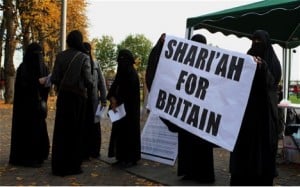
Last week, Manal Al-Sharif was arrested because she posted a video of herself driving around Alkhobar, Saudi Arabia, on YouTube. Because it is illegal for women to drive in Saudi Arabia, both she and her brother were detained. Al-Sharif has since been released, having pledged to take no further part in the Women2Drive campaign.
The Women2Drive is the campaign to overturn a ban on women driving in Saudi Arabia that was enacted in 1990. Through a web-based campaign that includes a blog, Facebook and Twitter, 10 Saudi women–including Manal Al-Sharif–encourage all Saudi women who have international driving licenses to drive through Saudi streets on June 17th in protest of the patriarchal ban:
“I’m doing it because I’m frustrated, angry and mad,” Manal, who asked to be identified only by her first name, said in an interview from the eastern city of Dhahran. “It’s 2011 and we’re still discussing this insignificant right for women.”
Though it might seem like something basic, driving for Saudi women is potentially a major change in life style. Even King Abdullah himself thinks so, as he stated more than once that he supported the reforms, including the lifting of the ban on women driving cars, when it is accepted by “[his] people.” Other religious leaders and governmental figures argue for lifting the ban:
“My mother for example, refuses to let my sister drive a car,” Abdul Aziz bin Salama, Vice Minister of Culture & Information said. But he pointed out that the opposition of some groups in society for women driving should not lead to a ban on the behavior itself. “Change is coming,” Salama continues, “…for a fair view of the case requires allowing women to drive.”
Interestingly, there’s another perspective in that issue: money. Prince Alwaleed bin Talal has questioned the need for a ban on women driving, pointing out that lifting the ban would reduce dependence on millions of foreign workers. He stated that Saudi Arabia could send about 750,000 foreign drivers back to their home countries if women were allowed to drive.
The change in Saudi Arabia is not only about women being able to drive. It is the way of looking to women and their capabilities; it is this general rule that women can have no choice when it comes to what they do and where they go. And for that reason, scholars have been addressing this topic as a matter of “what a woman can do”:
“Our prophet has encouraged Muslims to always try to be strong and independent, and to be able to defend themselves and others.” Sheikh Mohammed bin Ahmed bin Saleh said. “Women have the right to play sports, but politely and in decent behavior and away from the foreign eyes.”
Saleh, a member of the International Union for Muslim Scholars & Research Center of Al Azhar, continues: “There is no objection to women driving provided that security and safety are available, and so long she is able to act wisely.”
It is exactly this superior male attitude towards women needs to be directly addressed. Why would anyone think he has this right to judge how wise women act? Not to mention the unjust assumption that women are not entitled to actually navigate through life confidently and happily, even recklessly, like so many young Saudi men.
Even when a woman took action and she was ready to pay for it, like Manal, she was not arrested alone: her brother was also arrested, as if she is not perceived by Saudi authorities as a responsible human to be asked for her actions!
A Facebook campaign has been launched to counter-attack and demand whipping any woman who participates in such an event. “Our interest is to do everything in our power to prevent women from driving!” The Facebook group has been removed or hidden, but there are several references to it online. Several clerics have come out against Manal Al-Sharif and the campaign.
Regardless of the pushback, Noura Abdullah (one of the 47 drivers of the 1990 incident), who doesn’t have an international driver’s license and thus can’t drive on June 17, said she would help by spreading the word about the event with phone calls, text messages, and emails: “There’s momentum in Saudi Arabia now and that should help.”
The Initiative (“teach me to drive”) will be first step into the establishment of driving schools for women. And we will call for getting driver’s licenses for Saudi women, just like all women everywhere. We want to live full citizenship without the humiliation and degradation that we face every day because we need a driver!
These are the last lines in the Facebook page for the Women2Drive event. If you believe in these brave women cause and want to support them, support them on your social media accounts, talk about it with people, and help them raise the proper awareness they need to be widely heard. History will always remember those fearless people who face the consequences of their brave choices.











